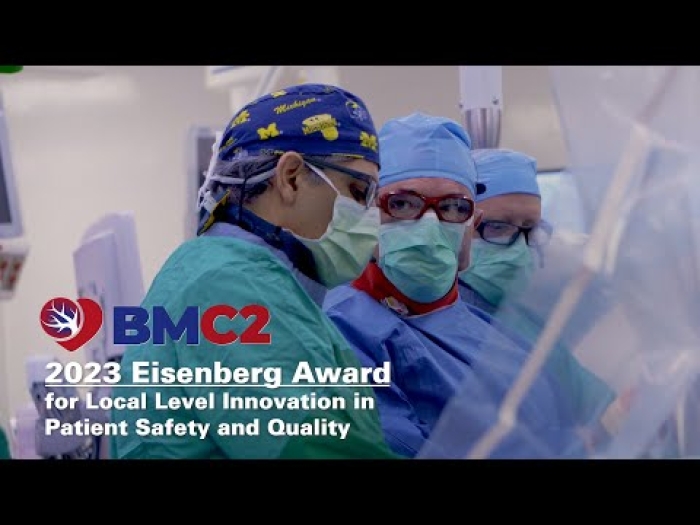
The Trump administration's proposed 2018 fiscal year budget included a $5.8 billion (18 percent) cut to the National Institutes of Health's $31.8 billion budget, along with a proposal to reorganize the agency. The plan included the elimination of the Fogarty International Center, which supports and facilitates global health research in the U.S. and abroad. A recent budget agreement for the 2017 fiscal year in Congress actually boosted funding for the NIH by $2 billion, inspiring some optimism among researchers. But given the proposal from the executive branch, concerns about the future remain. We asked members of the Michigan Medicine community to address how these cuts could affect research and innovation, and how, despite cuts in previous years (in inflation-adjusted dollars), we've been able to excel in research.
"Breakthrough medical advances at Michigan Medicine are at the core of our mission to deliver the best, most innovative health care to our patients. We do this by leading research from the most basic discovery science to implementing new innovations in the care of patients. Reductions in the NIH budget could have very significant repercussions for us and for all academic medical centers who share our mission. This, of course, would slow the progress of research and the application of research to health care. A concept that is less visible is that this would likely mean fewer researchers and clinical innovators are trained in the coming years. This is an era when there has never been more need for innovation in medicine."
Marschall S. Runge, M.D., Ph.D.
Dean, U-M Medical School
Executive Vice President for Medical Affairs, U-M
CEO, Michigan Medicine
"The proposed cuts to the NIH budget would cause immediate and long-term setbacks to children's health. Current funding for research on diseases that afflict children is less than 5 percent of the overall NIH budget. This 'leanness' means any reduction would impact critical NIH-funded work at Michigan and across the country. Research with potential for transformative discoveries that drive cures for childhood cancers, congenital heart defects, complications of prematurity and rarer but equally devastating diseases of children is at risk as is having a physician-scientist pipeline that is trained to provide and advance specialized care for children across the world. If NIH funding reductions occur as proposed, Michigan Medicine's commitment to research for children will still continue. Nevertheless, even with generous and increased support from all other sources, the pace of discoveries that translate into cures for children will be delayed for years."
Valerie P. Opipari, M.D. (Fellowship 1990)
Chair and Ravitz Foundation Professor of Pediatrics and Communicable Diseases
Professor of Pediatric Hematology and Oncology
"The proposed cuts would be a devastating blow to ongoing and future cancer research. Selection of NIH grants for support might emphasize 'blue chip' and 'treasury bond'-type grants rather than 'aggressive growth'-type grants with the highest risks and rewards. Cancer research would thus miss out on exciting opportunities for major impact in knowledge of cancer's genetic and lifestyle causes and new prevention and treatment approaches. A loss of hopefulness in the next generation of cancer researchers could be an even more ruinous blow. Nonetheless, cancer research and training at U-M would continue to succeed with the outstanding talent and resources in place, but at a pace and scale greatly constrained by the market conditions."
Eric R. Fearon, M.D., Ph.D.
Emanuel N. Maisel Professor of Oncology
Director, U-M Comprehensive Cancer Center
Professor of Internal Medicine, Human Genetics and Pathology
"A recent letter to Congress signed by U.S. business; science and engineering; medical and health; and higher education organizations stated, 'America's research and development enterprise has made our nation the world's preeminent, most effective and sought-after partner for innovation. It is among the most powerful engines of American prosperity, producing value far beyond the sum of its individual agencies.' At Michigan Pharmacology, we focus on translating basic discoveries in neuroscience, behavior, cancer, cardiovascular, renal and endocrine biology into new medicines. We take advantage of precision medicine to understand genetic diseases and the mechanisms of opioid abuse and addiction. Continued support from NIH is essential to our mission and to the future of our nation."
Lori L. Isom, Ph.D.
Chair and Maurice H. Seevers Professor of Pharmacology
Professor of Molecular and Integrative Physiology and Professor of Neurology





